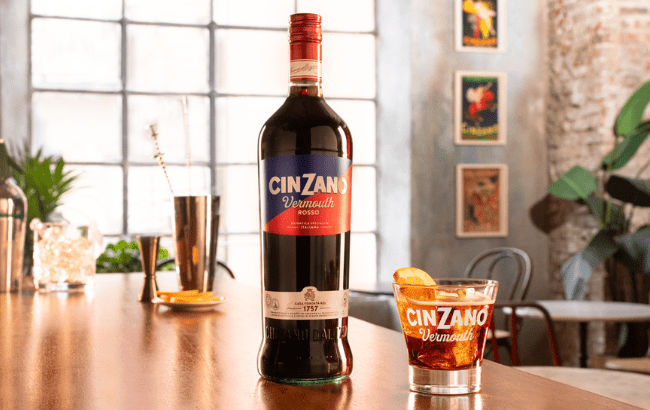Campari to offload Cinzano vermouth for €100m
By Nicola CarruthersItaly’s Campari Group has agreed to sell Cinzano vermouth to Caffo Group 1915 for €100 million (US$117m) as part of its strategy to streamline its portfolio.

Under the deal, private Italian spirits company Caffo Group 1915 will own the Cinzano vermouth and sparkling wine brand, as well as the Frattina grappa and sparkling wine business.
Milan-headquartered Campari said the sale was part of its move to dispose of non-core brands to ‘enhance commercial and marketing focus’ on its key spirits brands, simplify its operations and reduce outstanding debt.
In May this year, Campari Group CEO Simon Hunt confirmed the firm would not be seeking acquisitions but would commit to “streamlining the portfolio” through deleverage.
Hunt said: “The sale of Cinzano vermouth and sparkling wines and Frattina businesses marks a key step in our strategy of streamlining our portfolio via disposals, allowing us to increase our commercial and marketing focus on our key core brands.
“We are very pleased to execute this transaction with Caffo Group 1915, a focused player in alcoholic beverages with strong international ambition, hence the best fit for the future development of these brands.”
In 2024, net sales of Cinzano and Frattina totalled €75m (US$87.8m), with a compound annual growth rate of 5% over the past four years. The brands accounted for 2% of Campari Group’s overall net sales.
Based in Calabria, Caffo Group 1915 owns bitter brand Vecchio Amaro del Capo, which is said to be the market leader in the category in Italy.
The CEO of Caffo Group 1915, Sebastiano Caffo, described the acquisition as an “important step” in the company’s “international growth journey”.
“Following the strong success we have recorded in Italy with Vecchio Amaro del Capo, market leader in its category, we have strengthened our position in the domestic market, but we still have room for growth and a long journey ahead in international markets,” Caffo continued.
“Cinzano, a historic and iconic brand, will be pivotal to accelerate our international expansion, expanding immediately our footprint in more than 100 markets.”
Campari keeps production sites
The deal excludes Campari’s production facilities in Italy and Argentina, where it manufactures other brands. It includes all intellectual property, finished goods inventories, certain employees, some production equipment in Italy and contractual relationships, as well as other related assets.
Caffo Group 1915 and Campari Group will enter into a manufacturing agreement in Italy and Argentina to help with the transition.
Campari will also temporarily distribute Cinzano products in markets such as Argentina, Spain, Mexico, Russia, South Korea and South Africa.
“We believe that our longstanding experience in alcoholic beverages and our consolidated and far-reaching sales network will enable us to fully exploit the brand’s potential, starting with its relaunch in Italy,” Caffo added.
The transaction is expected to close by the end of this year.
Founded in 1757, Cinzano was bought by Campari in 1999. Frattina joined the group’s portfolio through the purchase of Fratelli Averna in 2014 for €103.75m.
The deal with Fratelli Averna included the acquisition of Averna (the second-best-selling bitter brand in Italy at the time), herb-based bitter Braulio, Limoncetta liqueur and Frattina.
Campari Group owns two of the world’s biggest-selling bitters brands, Aperol and Campari. The two brands managed to grow their volumes last year as competitors Jägermeister and Pernod Ricard-owned Ramazzotti declined, according to The Brand Champions 2025 report.
Campari restructures as sales drop
During the first quarter (Q1) of this year, Campari saw total sales decrease by 4.2%. Its largest division, House of Apéritifs (44% of group sales), was down by 1%.
Q1 sales in Campari’s home market of Italy fell by 3%, following a full-year revenue drop of 4% in the country.
In February, Campari Group said it would ‘evolve’ its operating model to boost efficiency and focus on priority brands, after sales dropped in the third quarter.
The move would mean an organisational restructuring of the business, which would result in job cuts. The group did not disclose how many employees would be affected.
A month later, Campari Group agreed to sell its sole production facility in Australia as part of its strategy to focus on the firm’s core brands.
Similar cost-cutting moves have been made at fellow spirits companies Pernod Ricard, Brown-Forman, Diageo and Moët Hennessy.
Related news
Campari to offload Amaro Averna to Illva Saronno in €100m deal
